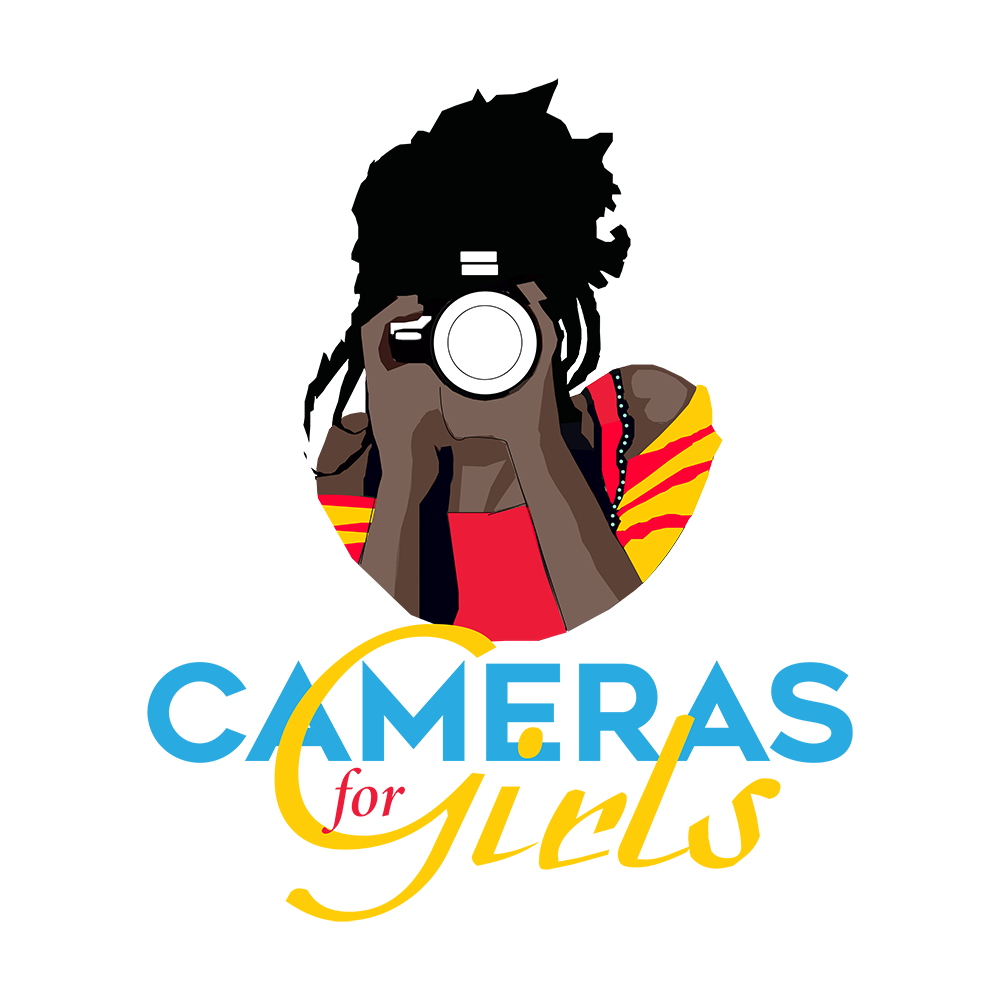The Impact of Visual Storytelling: How Our Students Are Changing Narratives
Visual storytelling is far more than just a creative outlet—it is a powerful tool for driving change. Through the lens of a camera, individuals can convey emotions, challenge perceptions, and initiate conversations that lead to societal transformation. At Cameras For Girls, our students harness this tool in a way that transcends art. They are crafting narratives reflecting their realities, communities, and visions for a more just and equitable future.
Melanie with a student she mentors in Uganda
The Power of Visual Storytelling
In today's world, where images often speak louder than words, visual storytelling uniquely captures the essence of human experiences. Our students, many of whom come from marginalized backgrounds, recognize the significance of telling stories that are frequently overlooked.
Photography allows them to depict their communities' struggles and triumphs. This visual narrative empowers them to spotlight issues such as gender inequality, poverty, and the everyday resilience that defines their lives.
Through the comprehensive training offered by Cameras For Girls, these young women have learned that a photograph is more than just a snapshot. It is a statement—an opportunity to give voice to those who have been silenced. Our programme teaches them to craft compelling stories that resonate with global audiences, showcasing their perspectives in a way that fosters empathy and understanding.
Empowering Communities Through Imagery
Our students aren't simply learning how to take photographs; they are learning how to shape narratives that reflect their truths. These stories are changing how their communities are viewed locally and internationally. By focusing on real-world issues such as gender equality, economic disparity, and cultural preservation, our students' work mirrors their societies, shining a light on their challenges while celebrating the beauty and resilience within.
One of our graduates, Melanie Nabukwasi, is a shining example. She used her photography and storytelling skills to raise awareness about the issue of female genital mutilation in Uganda. Her work extends beyond advocacy; it is a lifeline for the women whose voices are too often ignored. The ability to visually capture and share these stories has opened doors for our students, allowing them to engage in meaningful conversations within their communities and promote social change.
Breaking Gender Barriers in Male-Dominated Spaces
The media industry in Africa remains heavily male-dominated, but our students are rewriting this narrative. By equipping them with cameras and providing training in photography, storytelling, and business skills, we prepare these young women to challenge the status quo and secure paid employment in media roles. Not only are they thriving in these spaces, but they are also paving the way for future generations of women to follow.
Take Patience Natukunda, for example. After struggling to find work, she participated in our program and won the prestigious Travel Writer of the Year award in 2021. Today, she runs her own consulting company and teaches others the art of storytelling. Her success is part of a broader movement as more women step forward to take control of their narratives and dismantle long-standing barriers.
Inspiring the Next Generation of Visual Storytellers
Visual storytelling isn't just about the present—it's about inspiring future generations. At Cameras For Girls, we have launched a Train the Trainer program, where graduates return as instructors. This initiative ensures that the knowledge and skills gained are passed on, creating a ripple effect of empowerment that will continue long into the future. Each trainer is a role model, demonstrating that women can excel in any field with the right tools and support, even those traditionally dominated by men.
Our students' success stories inspire other young women to dream bigger, aim higher, and confidently tell their own stories. Our program's impact extends far beyond individual achievements; it influences entire communities, breaking the cycle of poverty and creating new opportunities.
Changing the Global Narrative
The stories our students tell aren't just local—they are global. In a time when diversity in storytelling is more important than ever, our students are contributing to a broader narrative that amplifies the voices of African women, particularly those from the Global South. These stories challenge stereotypes, promote understanding, and encourage a more inclusive view of the world.
By showcasing their work internationally, we are helping to shift global perceptions of Africa. Our students are not passive subjects—they are the storytellers, the creators, and the changemakers. Their work addresses issues that demand action while offering solutions grounded in their lived experiences.
A Picture Is Worth a Thousand Stories
The impact of visual storytelling cannot be overstated. It has the power to educate, inspire, and instigate change. Our students are not simply acquiring a skill—they are becoming the voices of their communities, the advocates for change, and the leaders of tomorrow. Through their lenses, they are reshaping the narratives of Africa, one picture at a time.
At Cameras For Girls, we firmly believe in the transformative power of storytelling. Through our students' dedication, passion, and resilience, the world is witnessing the impact of a single camera—not only to capture an image but to inspire a movement.
By supporting our work, you can help many more young women in Africa to get skills-based training to turn their dreams of getting paid work, into a reality.

